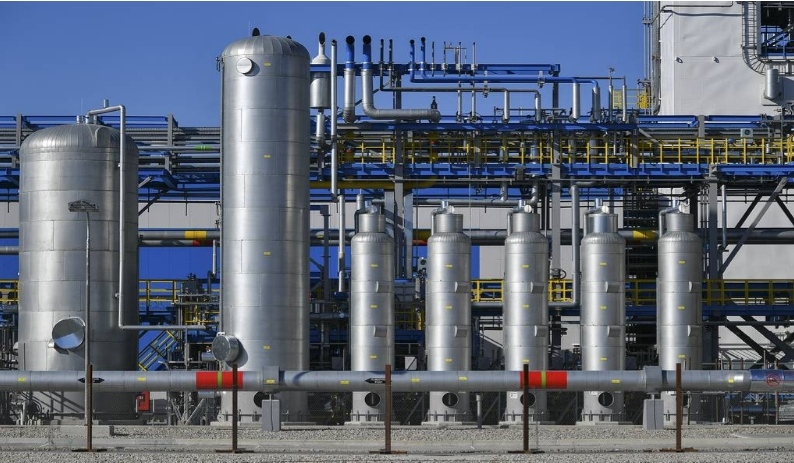Can EU really abandon Russian energy and retail?

Western Europe is being urged by the Americans not to renew gas contracts with Russia.
However Russia continues to supply gas to Europe, including via Ukraine. Geopolitical tensions, low supplies in European gas storage facilities and windless conditions in the North Sea has led to a cubic meter of gas costing more than $2. The price hike is also provoked by the unrealistic plans on replacing Russian gas. On Thursday, the International Energy Agency (IEA) proposed the EU not to conclude new contracts with Gazprom. However, if the tensions subside, the contracts will surely continue.
“In the current political context, long-term contracts cannot be renewed, yet the EU has not yet introduced a full trade embargo against Russia – that is, the current contracts will be fulfilled,” Stanislav Mitrakhovich, a senior expert at the National Energy Security Fund, told the newspaper, adding that Russia is unlikely to cut the supplies since “the sales of gas and other energy resources to Europe alone bring Russian suppliers about 1 bln euros a day at the current price”.
The deliveries of Russian gas to Europe remain the only solution to Europe’s energy crisis both in 2022 and in 2023, as gas supplies in European storage facilities are at a record low. However, according to Finam’s Sergey Kaufman, it is unlikely that any European country will be willing to defy the USA dictates and renew long-term contracts with Gazprom.
“One of Europe’s key energy goals at the moment is to lower the dependency on Russian gas. Of course, this cannot be accomplished at once, but the IEA thought that by sacrificing the ecology and economic growth it is possible to decrease the import from Russia approximately by a third, although it does seem like a rather radical scenario,” the expert said.
There is simply no alternative to Russian gas supplies for European consumers so placing sanctions on Russia raises risks for the deliveries of Russian hydrocarbons to Europe “look like European energy suicide.”
“We talked multiple times about European practicality, let’s hope, it will be manifested this time again. If this does happen and by the end of March 2022, Russia and Ukraine will fight exclusively at the negotiating table, then the European countries will need to swiftly request the increase of gas supplies from Russia,” the expert concluded.
Russia and Ukraine have presently agreed upon creating humanitarian corridors for the evacuation of residents as well as on delivering food and pharmaceuticals to the areas of military action. This is the only publically expressed result of the second round of talks between the delegations of the two countries held in Belarus on Thursday.
On the same day, Ukrainian President Vladimir Zelensky offered to meet his Russian counterpart Vladimir Putin in person to discuss all disagreements. Meanwhile, Moscow thinks that Kiev is intentionally stalling negotiations counting on Western help.
“When president Zelensky asked for the negotiations, president Putin immediately concurred and sent a delegation. Then, president Zelensky changed his mind. Perhaps, Americans told him not to rush. Then, [Ukraine’s representatives] said after all, no, we will come,” Russian Foreign Minister Sergey Lavrov said.
Director of Russia’s Foreign Intelligence Service (SVR) Sergey Naryshkin concurs: “Washington hopes that we will get stuck in this operation and perish while they can calmly get busy with ‘cleaning up’ the Middle East, Eurasia and the Asia-Pacific region. This won’t happen.”
Head of the Strategic Assessments Group at the Institute of World Economy and International Relations Sergey Utkin also did not rule out that the talks may be prolonged intentionally and in general one shouldn’t expect serious progress from these meetings at the moment.
“The Ukrainians, feeling the support of the West and of other countries, count on Russia realizing the hole it has dug itself into and backtracking. Russia presents demands that are unlikely to be accepted under the conditions when the Ukrainian armed forces continue to be capable of resisting while the majority of the Ukrainian population obviously rejects Russia’s presence.
Apparently, so far both sides don’t think that their situation has worsened enough to abandon their stated demands and principles,” the expert said.




